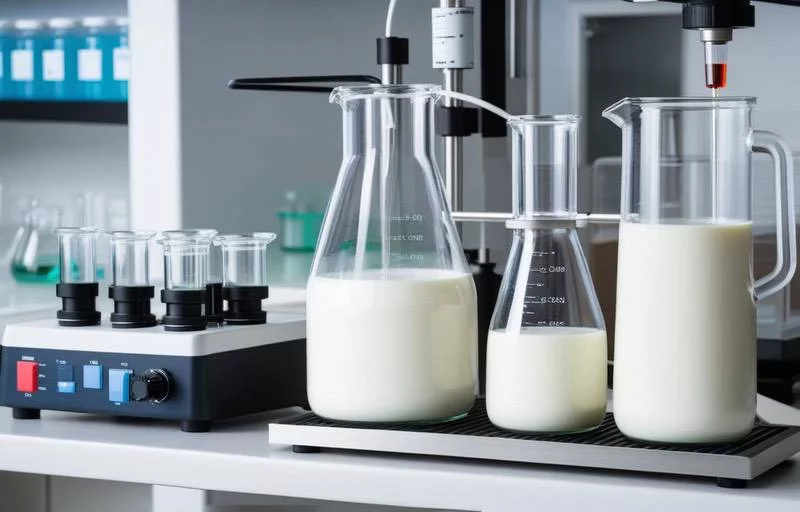
As the rate of male infertility continues to rise, one question comes to mind: can you increase your sperm volume naturally? The answer is yes, you absolutely can!
Read on if you want to know our healthy tips on how you can boost your sperm volume without the need for medical intervention. If you’re interested in that as well as how to cum huge loads with Bigger Loads, check out our training guide.
Why Trust Us?
We are deeply committed to providing reliable, scientifically-backed information tailored to enhance your well-being. Our expertise is rooted in over a decade of dedicated research and hands-on experience in the field, ensuring that every piece of advice we offer is not only grounded in evidence but also empathetic and practical. View our About Us and Evidence-Based Research pages for more details.
Is It Possible to Increase Your Sperm Volume Naturally?

Yes, you can increase your sperm volume, and that’s through a combination of factors. Among them are living a healthy lifestyle and eating a balanced diet, which are crucial in improving your sperm volume. Taking a dietary supplement can also help improve sperm counts.
However, male infertility isn’t always curable as there is no magic pill to boost sperm count. Fortunately, there are several things that you can do to mitigate male fertility issues.
6 Tips to Increase Sperm Count

Several ways can help you address infertility issues like low sperm count without the need for medical intervention of any type. Here are 6 healthy, proven tips to increase sperm count:
Tip 1 – Eat a Balanced Diet
One of the main reasons why a healthy diet is necessary to increase sperm volume is that the nutrients present in the foods you eat can contribute to increased sperm count. Sperm health and semen quality benefit from foods that are rich in antioxidants as sperm cells are vulnerable to oxidative stress.
Among the foods that you can consume for better sperm production are:
- Zinc-rich foods
- Fruits and Vegetables
- Nuts and Seeds
- Whole Grains
- Fish and Seafood
- Lean Protein Sources
tip 2 – Stay Hydrated
Hydration is crucial for semen volume because it is composed primarily of water. If you are sufficiently hydrated, your body can produce and maintain the required volume of semen that is optimal for reproductive and sexual function.
Apart from improving semen quality, staying hydrated also helps improve sperm motility and sperm quality. To stay adequately hydrated, experts recommend that you drink at least 8 glasses of water per day.
tip 3 – Exercise Regularly
Engaging in regular physical activity increases blood flow to your reproductive organs, which promotes semen production and increases sperm volume. Aside from increased stamina, exercise also regulates your testosterone, which is important in sperm production. Aim for at least 30 minutes of moderate exercise for 4 to 5 days a week.
tip 4 – Manage Stress
High levels of stress cause your cortisol levels to rise, which exacerbates oxidative stress. Oxidative stress can negatively affect your reproductive health, resulting in poor sperm health, reduced sperm count, and adversely affecting infertility.
Practicing techniques that promote stress reduction can help increase semen volume and sperm count, such as yoga or meditation. You may also adopt a stress-busting lifestyle, like making time for hobbies.
tip 5 – Avoid Taking Harmful Substances
Substance abuse and alcohol intake can disrupt your testosterone levels, lower sperm counts, and negatively affect the quality of seminal fluid production during ejaculation. They can also impact your reproductive health, including your prostate gland, which may result in erectile dysfunction and male infertility.
tip 6 – Consider Taking Supplements
Certain supplements can potentially improve sperm volume, semen production, and overall reproductive health. However, you’ll be wise to consult with a physician before starting a supplement regimen.
Zinc, vitamin C, folic acid, and vitamin D are antioxidant supplements that can improve semen quality and semen production, and impact sperm health. Coenzyme Q10, a type of amino acid, also provides similar benefits.
What is Seminal Fluid?
Seminal fluid, also known as semen, is the viscous fluid released from the male reproductive system during ejaculation. It is produced by the combination of male reproductive organs, namely: seminal vesicles, prostate gland, and bulbourethral glands.
The fluid is a mixture of various fluids and nutrients, such as prostatic fluid and free amino acids, among others. It serves as a vehicle for transporting and nourishing sperm cells.
The seminal fluid provides nutrients, protection, and lubrication to the sperm cells as they navigate through the male and female reproductive tracts. A healthy semen is essential if you want to get your female partner pregnant.
How to Measure Sperm Count?
A semen analysis is a diagnostic test performed to evaluate the quantity and quality of sperm present in a semen sample. During the test, a man provides a semen sample through masturbation or ejaculation into a sterile container.
Specialized equipment is used to count the number of sperm cells present per milliliter of semen. The laboratory technicians would then assess sperm motility and morphology to determine a man’s fertility potential and other underlying reproductive health issues.
What Will Decrease My Sperm Count?
Several factors can contribute to a lower sperm count. Among these is hormonal imbalance, resulting in low testosterone levels, due to natural or genetic causes.
Placing electronic devices near your testicles for long periods may negatively affect your sperm count. Placing your mobile device inside your front pocket is one good example.
Certain lifestyle habits may also affect your sperm count, such as excessive alcohol consumption, smoking, and drug abuse. Here are the other known contributors that can impact your sperm count:
- Obesity
- Poor dietary habits
- Wearing extremely tight-fitting underwear
- Frequent usage of hot tubs
- Prolonged exposure to saunas
